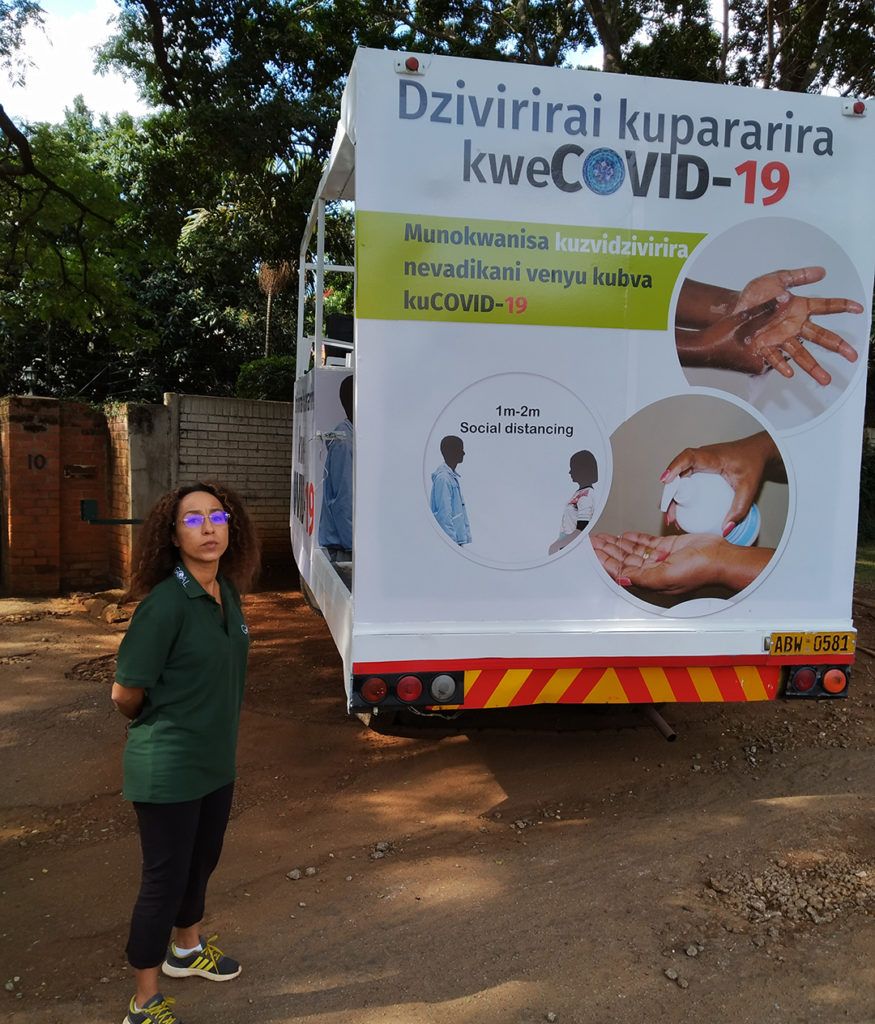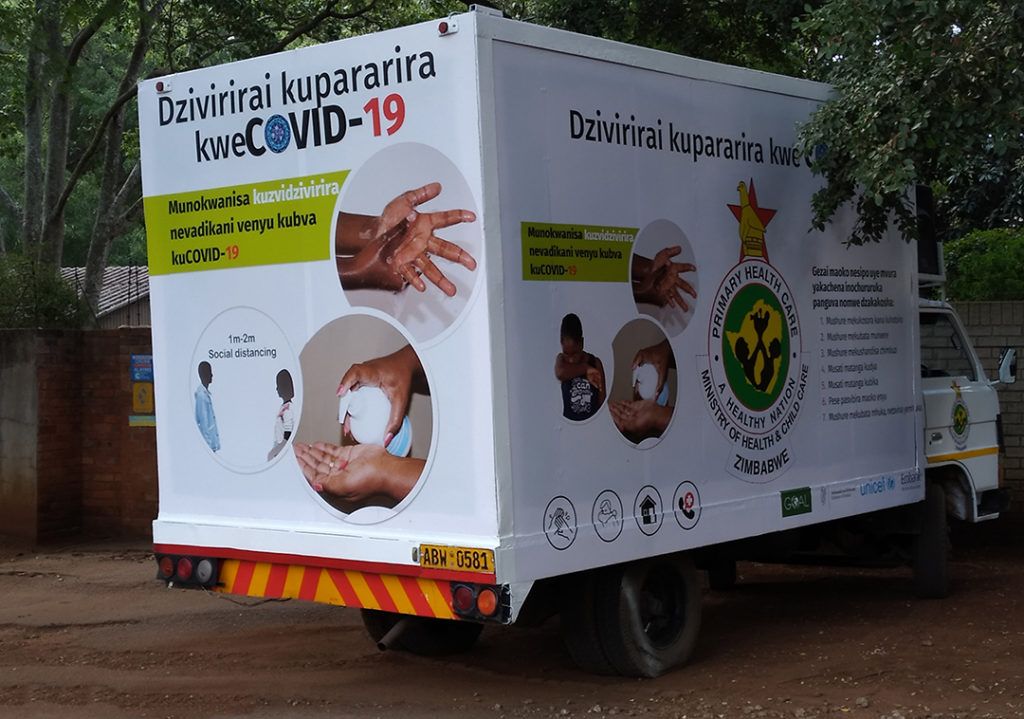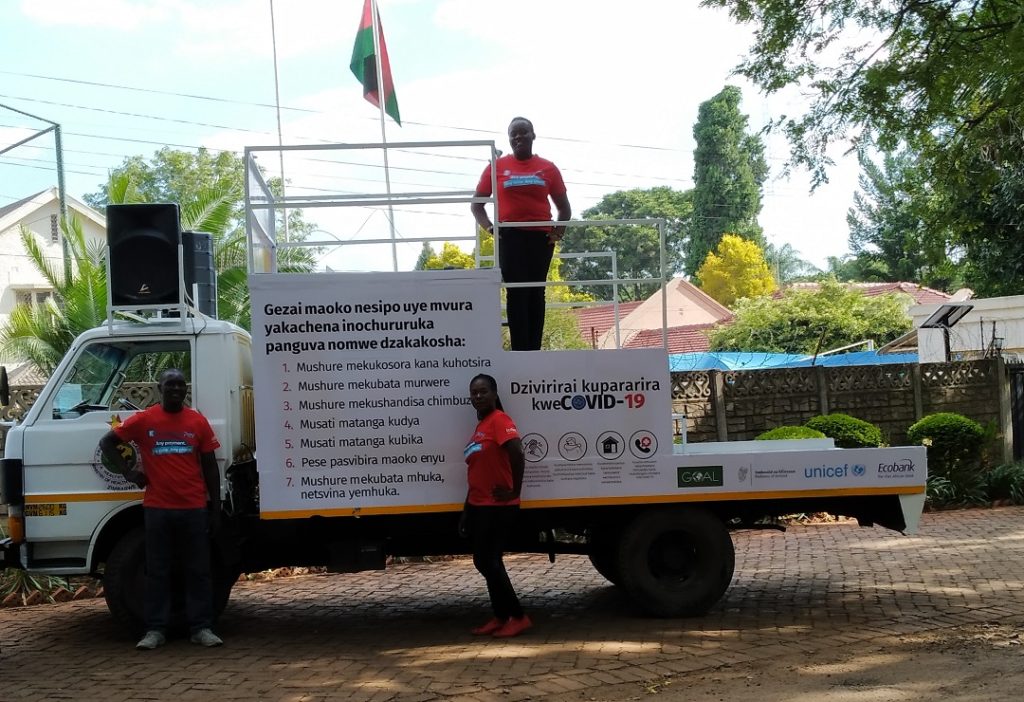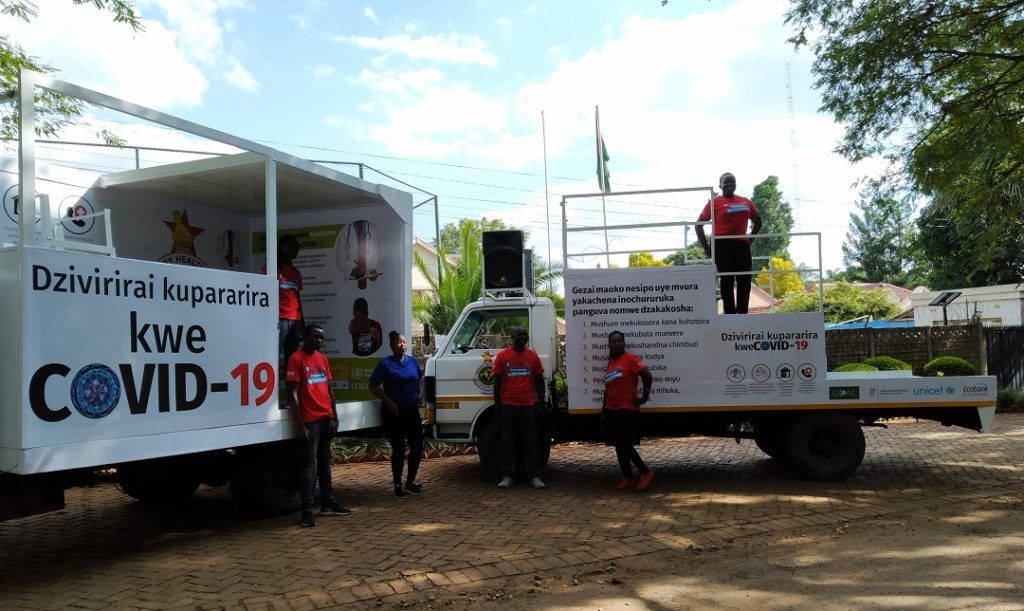 Blogs
Blogs
April 3, 2020 • 5 min read
GOAL Zimbabwe's Country Director, Gabriella Prandini, shares the unprecedented challenges that COVID-19 brings to her and her team's operations in a country still struggling from the devastation caused by Cyclone Idai last year.
"The reality is that the impact of the coronavirus is likely to be more severe on communities in Africa, already weakened by poor nutrition and vulnerabilities arising from the climate crisis. Health systems in countries such as Zimbabwe are simply not equipped to cope."
As I rang in the New Year in Harare three months ago with my family, I was very glad to say goodbye to 2019. It was a catastrophic year for Zimbabwe which was ravaged by a combination of Cyclone Idai, drought, and spiralling inflation which crippled the economy. However, in early 2020, it became apparent that the poor rainy season would leave over five million people food insecure in Zimbabwe.

Gabriella (centre) working on the Cyclone Idai response programmes run by GOAL Zimbabwe.
GOAL Zimbabwe was one of the lead responders to Cyclone Idai, which saw hundreds of thousands displaced from their homes and, sadly, caused hundreds to lose their lives. Our humanitarian response reached over 200,000 with food distribution, and assisted rebuilding communities. In January we started preparing to rollout new food distribution programmes in partnership with WFP to support those in need.
Weakened healthcare systems
Africa and Zimbabwe are now facing into the unthinkable fallout of COVID-19, and GOAL has been quickly adapting our programmes globally to adjust to this new context. The reality is that the impact of the coronavirus is likely to be more severe on communities in Africa, already weakened by poor nutrition and vulnerabilities arising from the climate crisis. Health systems in countries such as Zimbabwe are simply not equipped to cope. And ongoing conflict and poverty in many countries in Africa will further weaken the ability to fight a pandemic.
The World Health Organisation has warned that the world’s poorest continent faces a “dramatic evolution” of the coronavirus pandemic. Most African countries have now confirmed a total of almost 3,500 cases and almost 100 deaths.
Even developed countries such as Ireland have struggled to prepare for the impact that COVID-19 would have on their society and the lives of their citizens. We watch here on television as people face increasing restrictions on their movement around the world and queue for household and food items.
Zimbabwe has experienced shortages of commodities for many years, and Zimbabweans have mastered the art of queuing. They queue for cash at the banks, for fuel, for basic goods when there are shortages, and so are familiar with day to day disruptions and have learned to be resourceful, or to simply do without.
Due to a lack of cash and sustained inflation, Zimbabweans have been using mobile banking since 2011 as one of the main ways of purchasing goods and services, and it is certainly ahead of many other developed nations in this respect. This will bring an advantage now, greatly contributing towards limiting exchanging of notes amongst people and therefore reducing the risk of spreading infection.
Zimbabwe responds to COVID-19

GOAL Zimbabwe’s emergency response programmes after Cyclone Idai hit Zimbabwe in March 2019.
As of the 28th of March Zimbabwe has seven confirmed COVID-19 cases. The number is low but so is testing, as in many other countries in Africa, due in part to the lack of test kits. Here the President has announced a 21-day-lockdown and we welcome this decision even though it will bring us challenges in carrying out our work.
With a frail health infrastructure, the only way Zimbabweans have a chance is through strict preventative measures. We see that countries in Europe are struggling with lack of space in their hospitals and insufficient equipment and protective clothing in their response to COVID-19. The struggles here if the virus spreads and takes a hold will be far greater.
GOAL Zimbabwe is playing its part in helping stop the spread of the virus here. In partnership with the Ministry of Health and UNICEF, and supported by Irish Aid, we launched a national radio campaign on basic steps to take to halt the spread of the virus. In addition, we started an awareness campaign using large mobile units, driving through Harare and two other districts we work in. This is possibly one of the safest ways to create awareness at the moment and ensure social distancing. Listen to the announcement here:
While people all over the world are now familiar with the main COVID-19 prevention messages – to wash hands regularly and keep a social distance – there are huge challenges here. Some areas don’t have access to clean safe water, or indeed soap. And keeping a social distance in densely populated communities, and in displaced and refugee camps, will be near impossible.
A decision to lockdown in a country like Zimbabwe is not an easy one to make. While it will contribute greatly towards the prevention of the spread of the coronavirus, it will also mean that people who were living day by day by selling their goods on the side of the road, and the number of food insecure households, will increase.
As well as leading GOAL’s operations in Zimbabwe, I am also a mother. My two boys are at home now, with schools closed. And I have certainly learned to appreciate the work that teachers do. Trying to navigate through my boys schoolwork, and keep them focused, is proving harder than running an organisation. A big shoutout to all teachers out there!
As we head onto even more uncertain times, for once we in Zimbabwe no longer feel on our own with our struggles. The whole world is struggling, and one advantage Zimbabweans have is that they have built up huge resilience due to past crisises long before COVID-19.
We welcome the lockdown directives by the Government of Zimbabwe, and GOAL will endeavour to continue to support the communities we have been serving, now more than ever.




